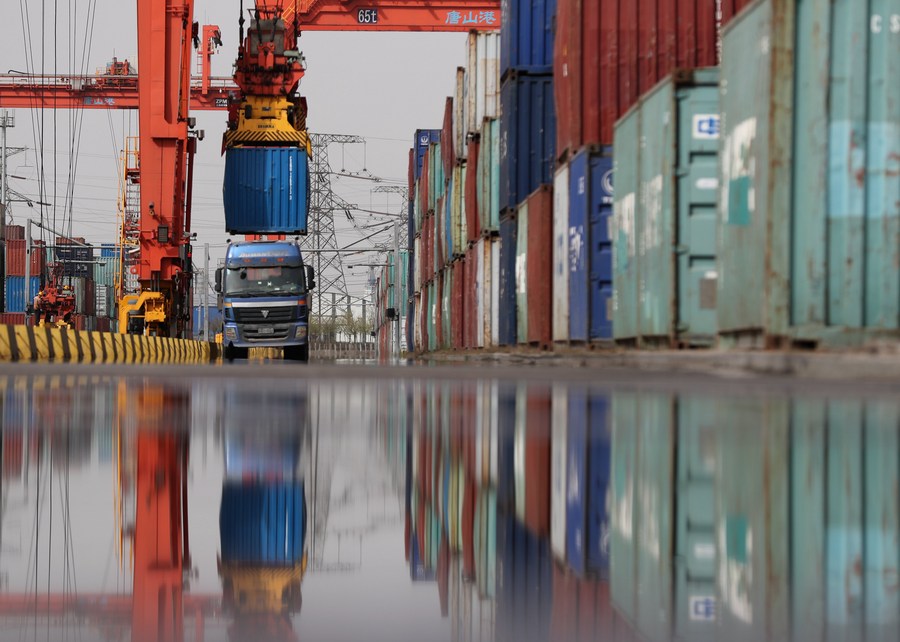A truck loads containers at Tangshan Port, North China’s Hebei province, April 16, 2021. [Photo/Xinhua]
Premier Li Keqiang presided over an executive meeting of the State Council, China’s cabinet, in Beijing on Thursday, which identified cross-cyclical adjustment measures to promote the stable development of foreign trade and made arrangements for the implementation of the Regional Comprehensive Economic Partnership agreement after it takes effect. The meeting pointed out that foreign trade is facing growing uncertainties and that special efforts are needed to help export enterprises stabilize market expectations, and promote the steady development of foreign trade.
The raging Omicron variant of the novel coronavirus has shaken the global supply chains again as many countries shut their borders, and many developing countries face the risks of capital outflows and currency depreciation and weakening domestic demand.
The quantitative easing policies of the United States, the European Union and Japan might be extended, meaning that the performance of the financial market may further deviate from the real economy.
China’s domestic epidemic prevention and control and various economic policies and measures are active and effective, domestic economic operations are fundamentally stable, and its manufacturing industry is booming. Trade with the Southeast Asian countries has helped China hedge against reductions in its exports to Europe and the United States. Also, after the RCEP takes effect, more than 90 percent goods trade within the region will enjoy zero tariffs, which will boost international trade. That’s why the RCEP was high on the agenda of the meeting Premier Li presided over last week.
Besides, China should make full use of the multilateral trading system, upgrade the value chain of its foreign trade industry, give full play to its comparative advantages in textile, mechanical and electrical industries, and enhance its domestic technological capabilities, so as to ensure the safety of its industrial chain and realize the transformation and upgrading of its foreign trade industrial structure.
There should be more well-targeted pro-trade and pro-business policies to support the development of supply chains and small and medium-sized enterprises.
At the same time, the government should support the innovation and development of comprehensive information sharing platforms among departments and institutions such as commerce, finance, customs, taxation, foreign exchange management, and financial institutions to promote dynamic supervision and services.
With the support of policies, the resilience and vitality of foreign trade enterprises will continue to increase, and the development of new business forms and new models will accelerate, forming new growth points.
- 21st Century Business Herald
Post time: Dec-27-2021


